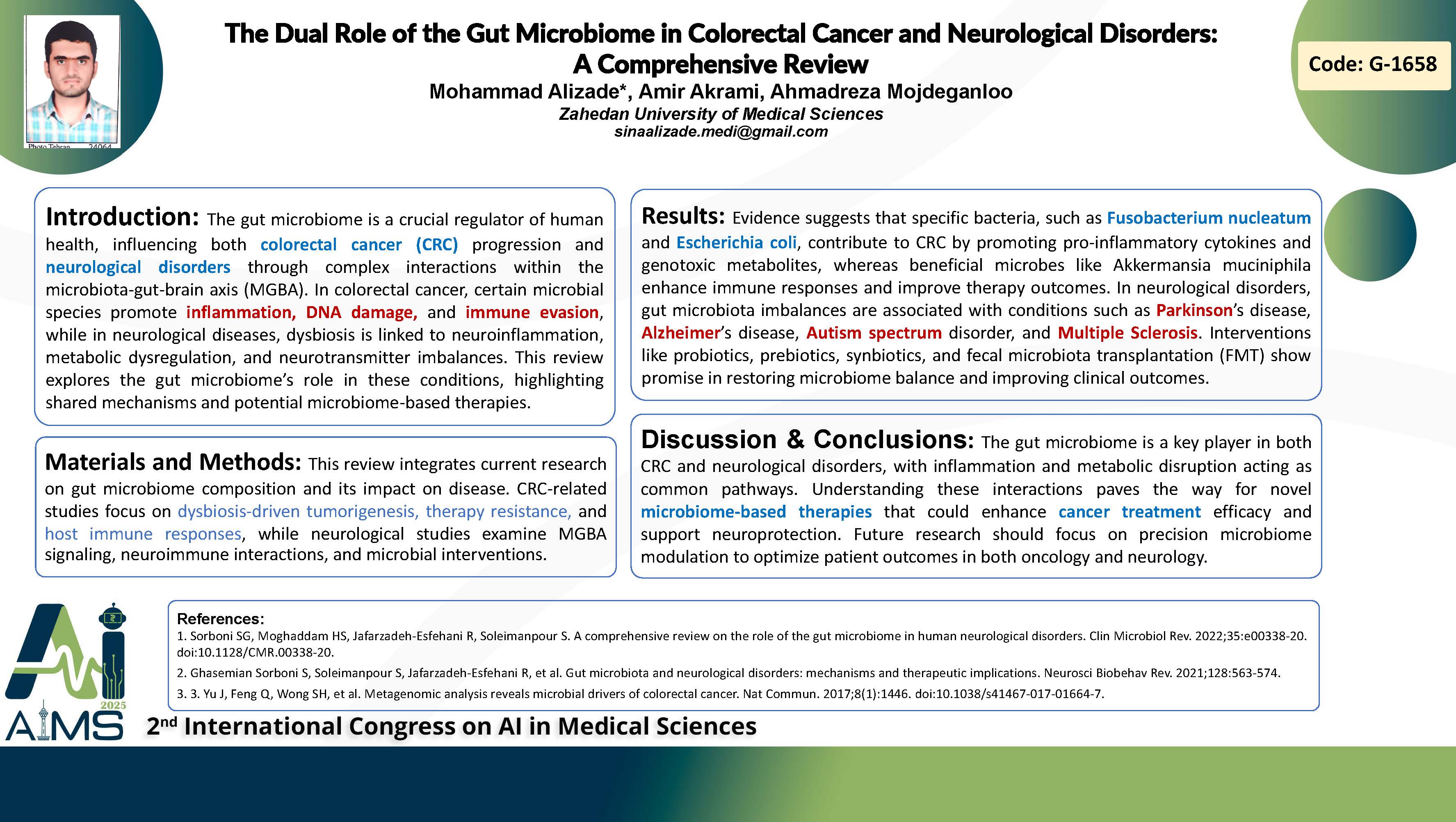The Dual Role of the Gut Microbiome in Colorectal Cancer and Neurological Disorders: A Comprehensive Review
Code: G-1658
Authors: Mohammad Alizade * ℗, Amir Akrami, Ahmadreza Mojdeganloo
Schedule: Not Scheduled!
Tag: Cancer Diagnosis & Treatment
Download: Download Poster
Abstract:
Abstract
Background and Aims: The gut microbiome is a crucial regulator of human health, influencing both colorectal cancer (CRC) progression and neurological disorders through complex interactions within the microbiota-gut-brain axis (MGBA). In colorectal cancer, certain microbial species promote inflammation, DNA damage, and immune evasion, while in neurological diseases, dysbiosis is linked to neuroinflammation, metabolic dysregulation, and neurotransmitter imbalances. This review explores the gut microbiome’s role in these conditions, highlighting shared mechanisms and potential microbiome-based therapies. Methods: This review integrates current research on gut microbiome composition and its impact on disease. CRC-related studies focus on dysbiosis-driven tumorigenesis, therapy resistance, and host immune responses, while neurological studies examine MGBA signaling, neuroimmune interactions, and microbial interventions. Results: Evidence suggests that specific bacteria, such as Fusobacterium nucleatum and Escherichia coli, contribute to CRC by promoting pro-inflammatory cytokines and genotoxic metabolites, whereas beneficial microbes like Akkermansia muciniphila enhance immune responses and improve therapy outcomes. In neurological disorders, gut microbiota imbalances are associated with conditions such as Parkinson’s disease, Alzheimer’s disease, autism spectrum disorder, and multiple sclerosis. Interventions like probiotics, prebiotics, synbiotics, and fecal microbiota transplantation (FMT) show promise in restoring microbiome balance and improving clinical outcomes. Conclusion: The gut microbiome is a key player in both CRC and neurological disorders, with inflammation and metabolic disruption acting as common pathways. Understanding these interactions paves the way for novel microbiome-based therapies that could enhance cancer treatment efficacy and support neuroprotection. Future research should focus on precision microbiome modulation to optimize patient outcomes in both oncology and neurology. Keywords: gut microbiome, colorectal cancer, microbiota-gut-brain axis, neurodegenerative disorders, probiotics, microbiome therapy
Keywords
Gut Microbiome, Colorectal Cancer, Microbiota-gut-brain
